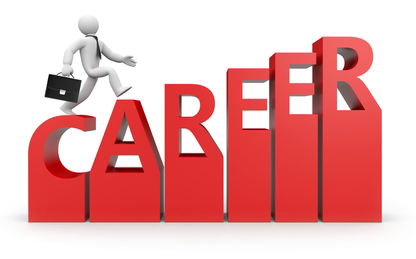`
“It’s a whole new track. It’s not going back. It’s just all different and it’s different forever…It’s creating my next track…I’m figuring out what I want to do. What do I care about? It takes time to process your life and figure out what it all means…”(Michelle Obama)
This was Michelle Obama’s response when asked how she felt about getting back on track to the life she had before she became First Lady of the United States. A response that is extremely relevant to all of us today as we attempt to look beyond coronavirus and make decisions about our future. We are all starting to create our next track. The question is, how do we do this? How do we start taking control and making decisions about our future careers when everything appears so uncertain?
The track of uncertainty
Before the time of Covid-19, we were all moving along our own track, considering, and making decisions and creating a life for ourselves. There were often bumps and cracks on the track and sometimes we were faced with difficult decisions about our careers, the kind of decisions that can only be made with certainty if we could successfully predict the future, a luxury none of us have!
Covid-19 then happened, and this uncertainty was reinforced as we were all sent on a lockdown diversion from our existing track. This wasn’t any old diversion; this was a life changing diversion and nothing like anything we had experienced before. The diversion took us in a completely different direction which required us to live our lives differently. We had little control over this track and its destination, filling our lives with what felt like a new level of uncertainty as we experienced feelings of insecurity, anxiety and stress over a number of weeks as the country tried to control the virus.
As things slowly improve, we are gradually being given back some control. Undoubtedly this has its benefits, but it also means the time is fast approaching for us to face making decisions again about our daily lives and careers. It is time to create our new track by navigating the impact coronavirus has already had on our lives and will continue to do so in the future.
The challenges of creating a new track in an uncertain world
Making decisions and creating a new track is easier said than done, isn’t it? I know many people are reluctant to make decisions at the moment, waiting for when life becomes more certain. However, we know that even before the time of coronavirus, we could not accurately predict the future. We could not have predicted in March 2019 that we would be subjected to a lockdown in March 2020. If we wait for a time when things become certain, we will be waiting a long time.
To help stop the waiting game, we first need to tackle one of the initial challenges which can stop us from making decisions and that is lack of confidence. A lack of confidence can have a huge impact on our ability to make decisions. How do you now overcome this to enable you to forward and create your new track?
The creation of your new track
There are two areas to focus on here: mindset and imagination.
- Mindset
Lockdown has triggered negative thoughts for everyone. These thoughts will impact how we feel and how we behave. If you are experiencing negative thoughts at the moment, it is okay. You may still be feeling anxious which is totally understandable given what our minds have been exposed to and had to process during the pandemic. You may have been experiencing a lack of confidence prior to lockdown and this has not gone away. You may have been wanting to pursue a career change prior to lockdown and now feel it’s not possible.
There will always be things, some of greater impact than others, that happen in our lives that make us feel this way. What is important is that you notice how you are thinking, feeling, and reacting and consider whether your reaction will help you move forward constructively. Remember, negative thoughts have the power to stop you achieving what you want to achieve. When you are ready, start believing you can make decisions and move on to point 2 to help you to start working out what you want to achieve in your career.
(For further reading on mindset, have a read of these previous blogs, ‘Four rules you need to know for career success’, ‘5 ways to get unstuck to make a career change’, ‘Showing negative emotion is not the done thing’, ‘Six reasons stopping you getting the job you will love’ and ‘Does looking at past events help you change career?’.)
- Imagination
Using our imagination can helpfully guide us with our decision making. Imagining our ideal future forms a positive basis for our decisions, opening ourselves up to opportunities. Yes, we can’t account for future obstacles that fall in our way, but these obstacles will continue to shape our future. A vision provides a starting point for your future plans and enables you to build in flexibility where required to allow for unforeseen events.
(For further reading have a read of these blogs, ‘Making your dream career a reality’ and ‘The best kept secret to career success’. Imagination is always an important focus at the beginning of my career coaching programmes and there is a section on this in my book, ‘The Tea Model: Slowing down in a fast-paced world to find the career you love’.)
How do I know this can work?
I can speak from personal experience with my own career change journey. I left my job as a solicitor in 2008, having decided to take a career break. I had been wondering what else the world of work had to offer me but knew if I carried on working as a solicitor I wouldn’t discover other possible opportunities. I didn’t know exactly what the next part of my career path was going to be, and I could not accurately predict my future. However, I had saved enough money to get me through a set period of time and if nothing happened in that time, I would return to law. As it happened, opportunities started to open up to me when I left and to cut a long story short, I have now been running my career coaching business for 10 years. You can find out more about this in my blog ‘Tessa’s Career Change Journey’.
I know I was not experiencing a world pandemic during this time, but the key principles are the same. It wasn’t the perfect journey and many of the decisions I made were based on uncertainty. However, the initial steps were all about mindset (believing I could do it) and using my imagination. I created a long-term vision of what I would love my career to look like and I am still enjoying slotting all the pieces together.
The uncertainty of today is inescapable, we can never say for certain what will happen in the future. We don’t know the answers to all the questions and we don’t know what the future world of careers is going to look like. What is important is how we deal with this uncertainty so that we continue to move forward and be open to opportunities. It doesn’t matter if you have to change or adapt your plans along the way. What is important is that you are creating a track and starting to move forward with the flexibility to adapt and change if necessary.







 It’s that time of year when I do a round-up of all my articles and blogs for the year. I do this so that when reflecting on your career (as many do over Christmas and New Year) you can quickly scan through this round-up and read what is relevant for you. I hope it is helpful!
It’s that time of year when I do a round-up of all my articles and blogs for the year. I do this so that when reflecting on your career (as many do over Christmas and New Year) you can quickly scan through this round-up and read what is relevant for you. I hope it is helpful!



